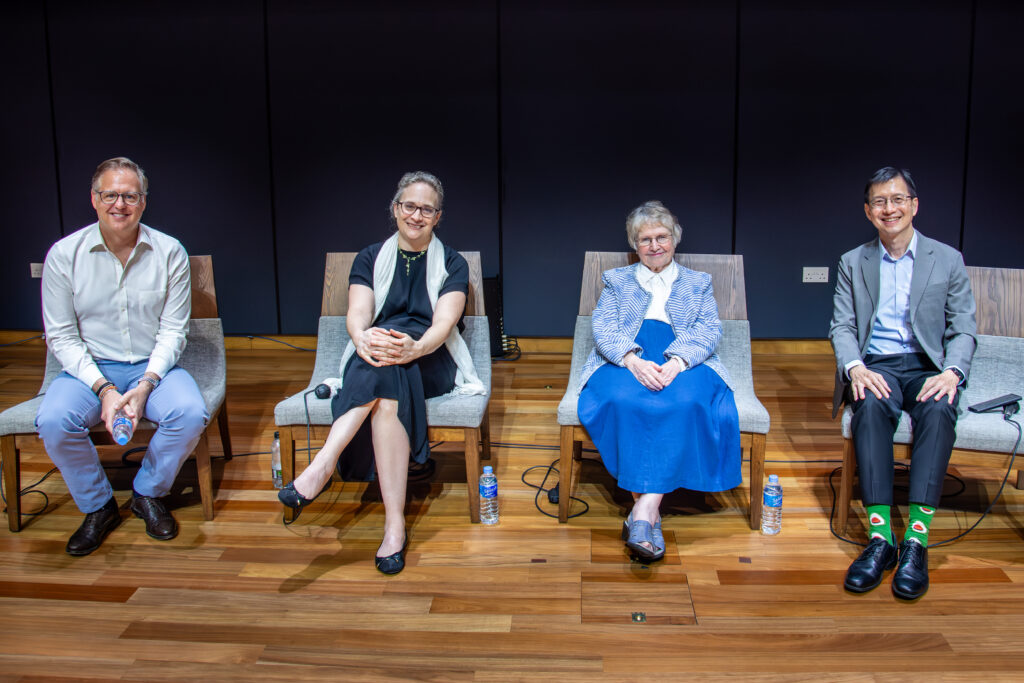On 8 January 2025, DREAMS hosted its inaugural symposium titled Adolescents at the Crossroads: Navigating Education and Society in the 21st Century. The symposium welcomed 200 attendees, including researchers, policymakers, school leaders, and teachers, all focused on advancing the understanding of adolescent development in the local context.
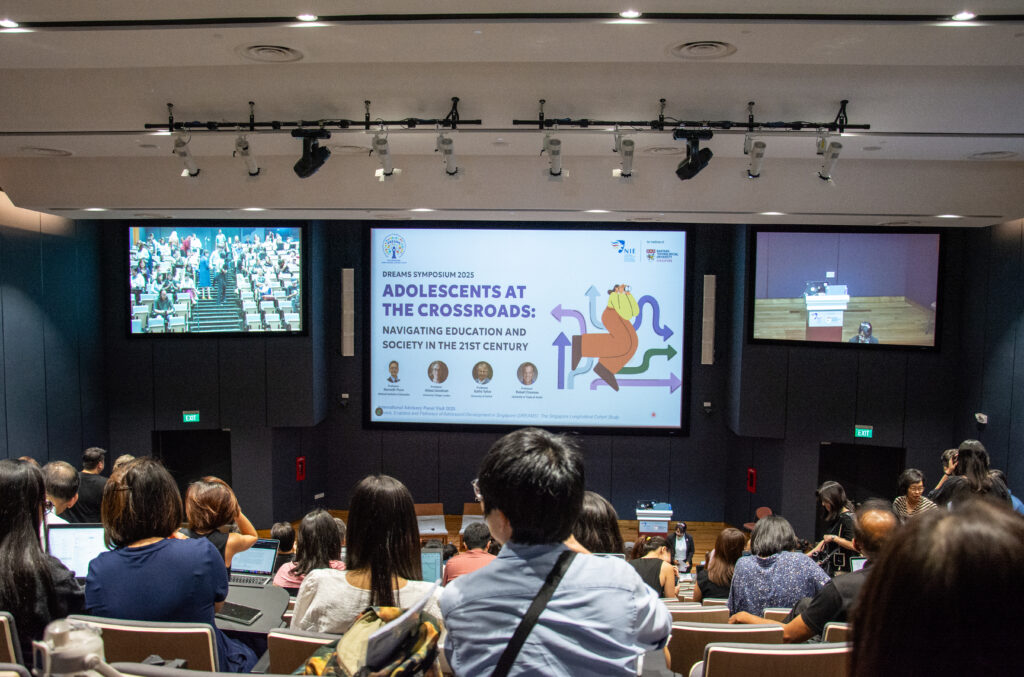
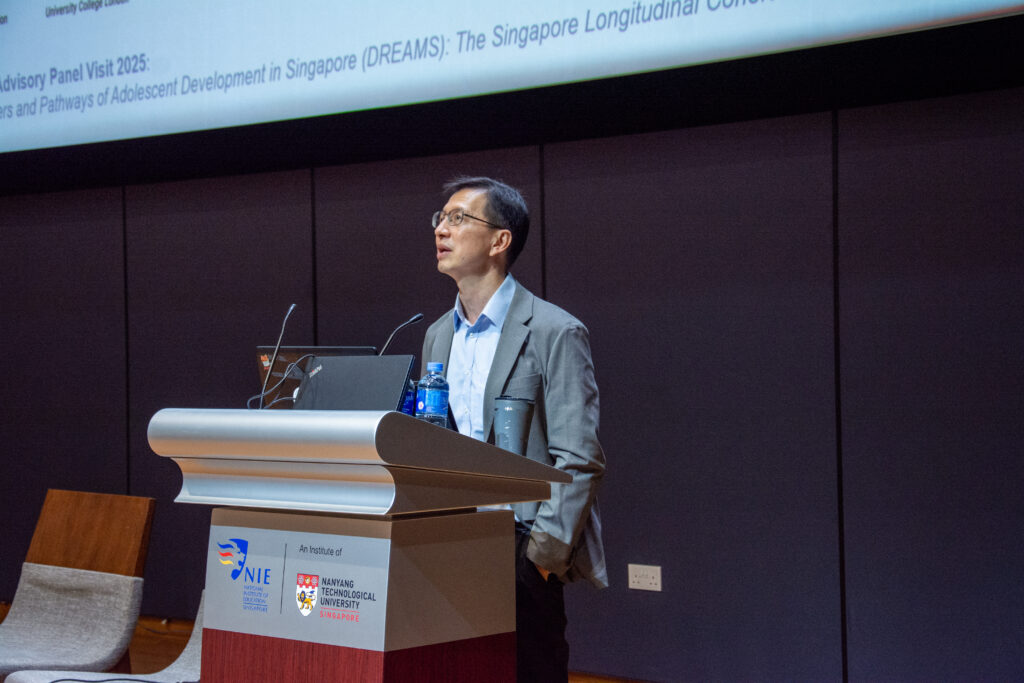
The event opened with a presentation by Prof Kenneth Poon, Principal Investigator of DREAMS, titled Why we need to understand adolescent development: Early insights from DREAMS, a longitudinal study of adolescents in secondary schools. Prof Poon highlighted adolescence as a transformative yet complex stage of life, shaped by physical, cognitive, and social changes. His talk underscored the unique challenges and opportunities faced by adolescents in Singapore’s education system and ever-changing societal landscape.
Following Prof Poon, the DREAMS International Advisory Panel members delivered a series of insightful presentations, showcasing their expertise in longitudinal research:
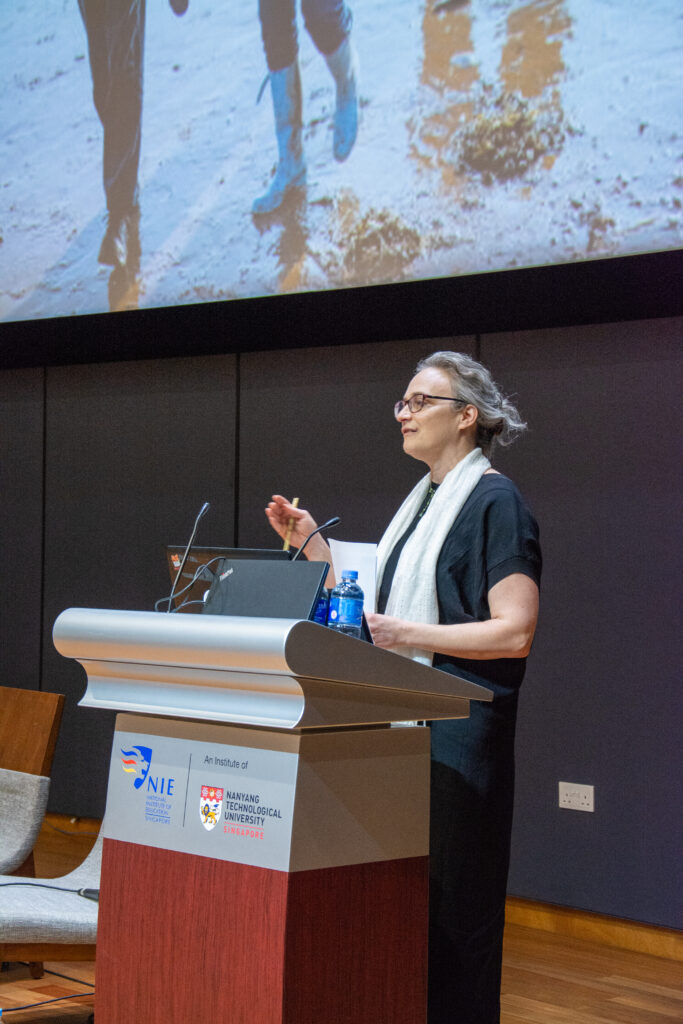
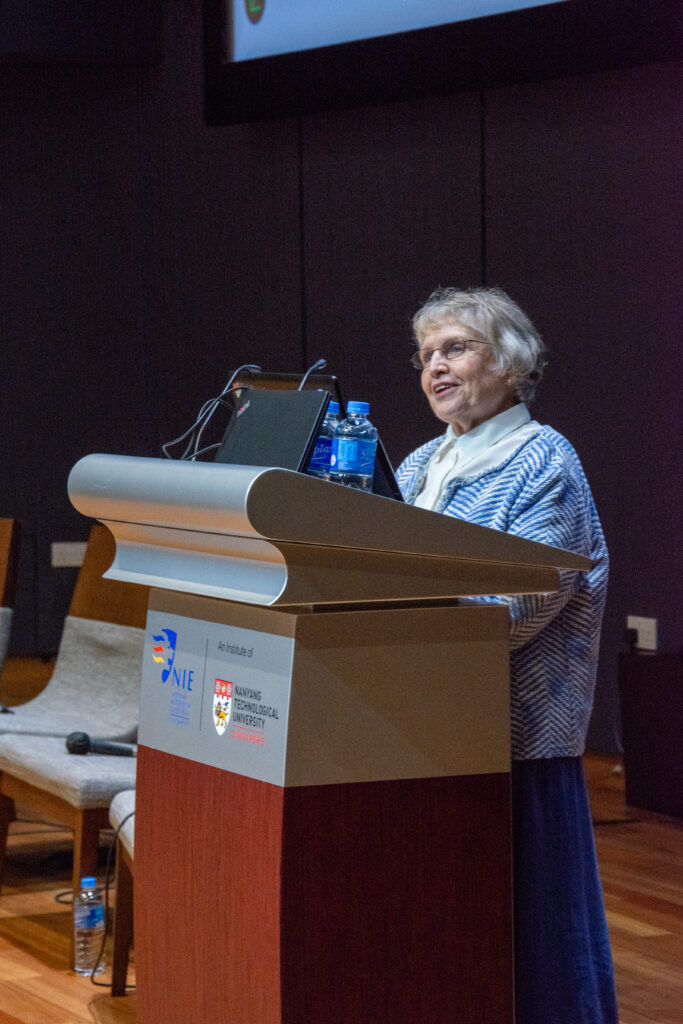
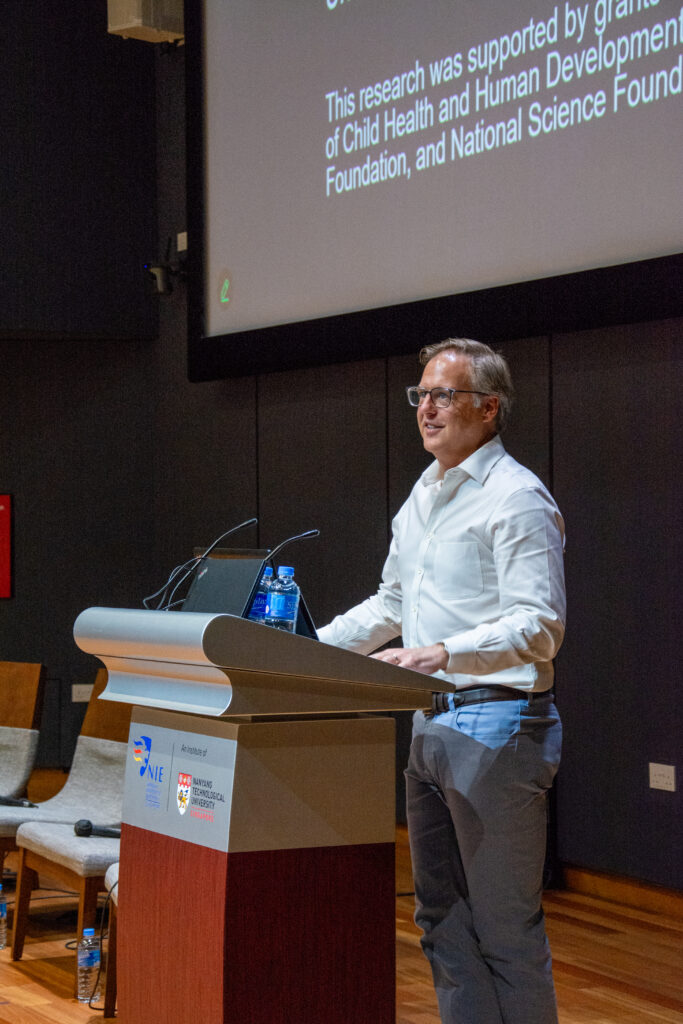
Prof Alissa Goodman (Economist, University College London) presented Secondary schooling years and youth development: A life course perspective. Prof Goodman introduced a suite of national longitudinal studies conducted in the UK by the Centre for Longitudinal Studies, including the Millennium Cohort Study and the Next Steps Study. She explored early life predictors of adolescent development and how inequalities widen during the secondary schooling years, with implications for a wide range of adult outcomes. Prof Goodman’s insights underscored the critical role of parental and child attitudes and behaviors in shaping developmental trajectories and highlighted how robust longitudinal data can inform evidence-based policymaking.
Prof Kathy Sylva (Educational Psychologist, University of Oxford) delivered a presentation titled Family and school influences on the well-being of adolescents in England: Evidence from a longitudinal study. Drawing on the Effective Provision of Preschool, Primary, and Secondary Education (EPPSE) study, which tracked over 3,000 children from age 3 to 16, Prof Sylva highlighted how background factors are the strongest predictors of academic attainment. However, she emphasized that school factors also predict broader developmental outcomes—such as self-concept, citizenship values, and school enjoyment—that are critical for well-being and social cohesion. Prof Sylva argued for the importance of measuring and strengthening these dispositions to promote adolescents’ capacity to thrive in diverse communities.
Prof Robert Crosnoe (Sociologist, University of Texas at Austin) presented The Intertwining of Educational Trajectories and Social Psychological Development in Adolescence in the U.S. Prof Crosnoe highlighted the critical role of fostering a growth mindset in adolescents and shared insights from mixed-methods research on the social and emotional challenges they face during secondary school. He detailed an effective school-based intervention developed by his team in the U.S., designed to prime a growth mindset and improve alignment between students and their school environments. His talk emphasized the interconnectedness of social, psychological, and educational development and the importance of interdisciplinary approaches in designing impactful interventions.
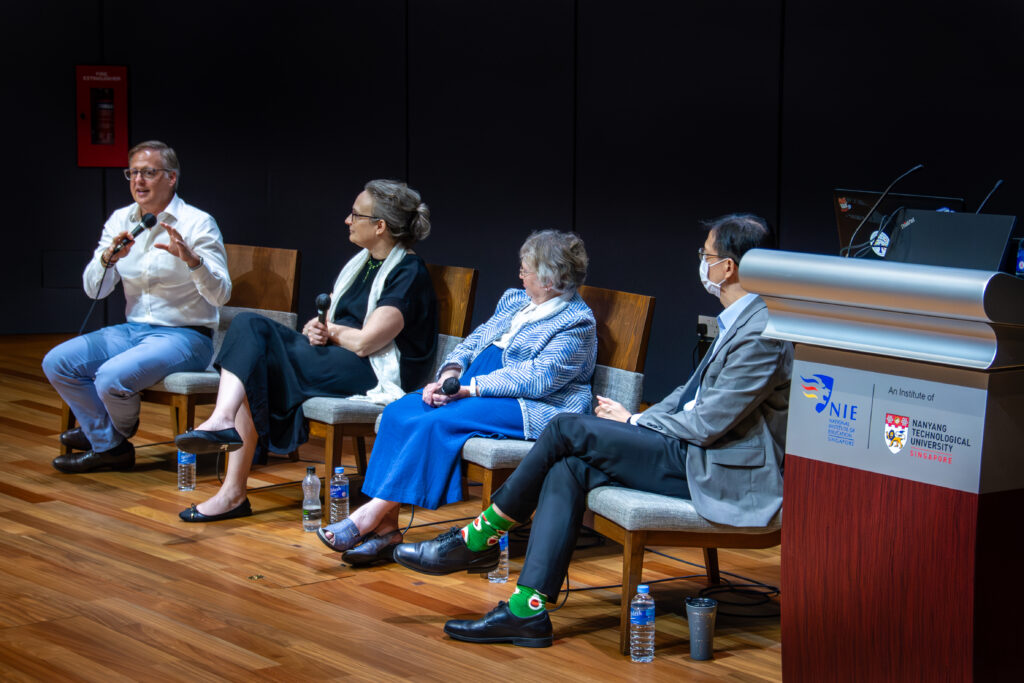
The symposium concluded with a dynamic and engaging Q&A panel featuring all four professors. The discussion covered timely topics such as the pervasive influence of technology on adolescents, strategies for integrating research findings into policy and practice, and the challenges of balancing academic outcomes with holistic developmental goals. Attendees actively participated in the dialogue, raising critical questions that enriched the discourse.
We extend our deepest gratitude to all participants for making the DREAMS Symposium a success. The event provided a valuable platform for exchanging ideas, fostering collaborations, and advancing the shared goal of understanding and supporting adolescents during this critical phase of development.
